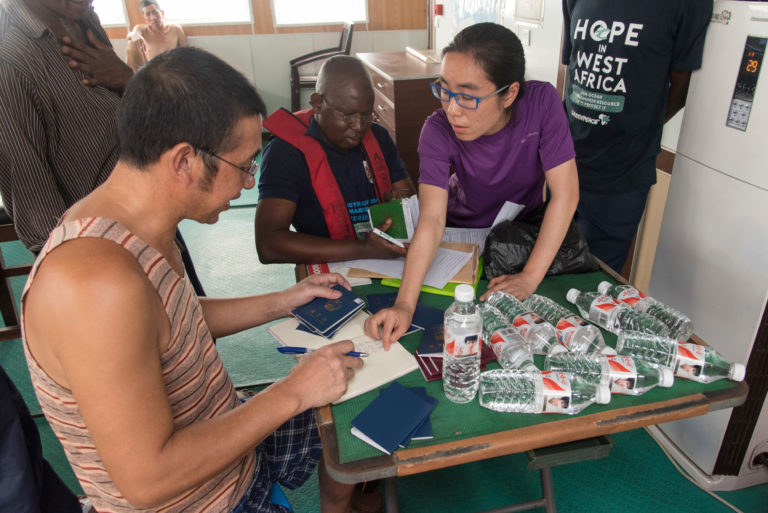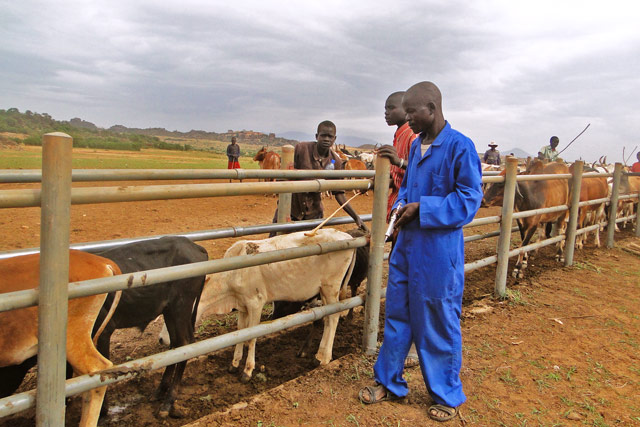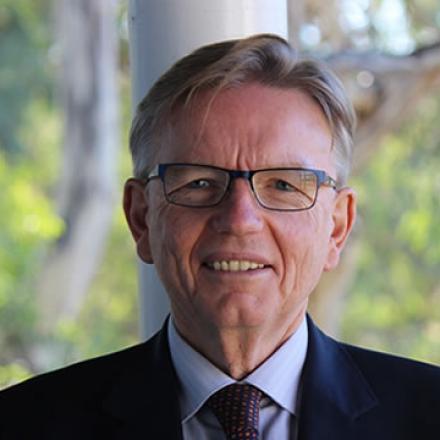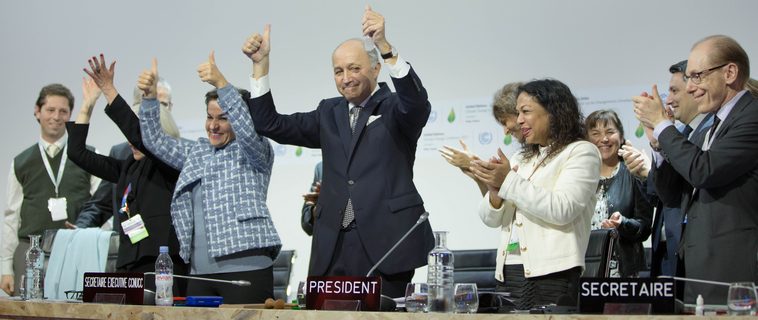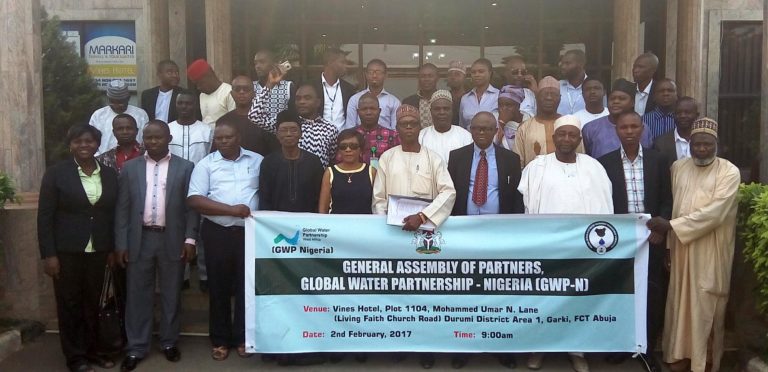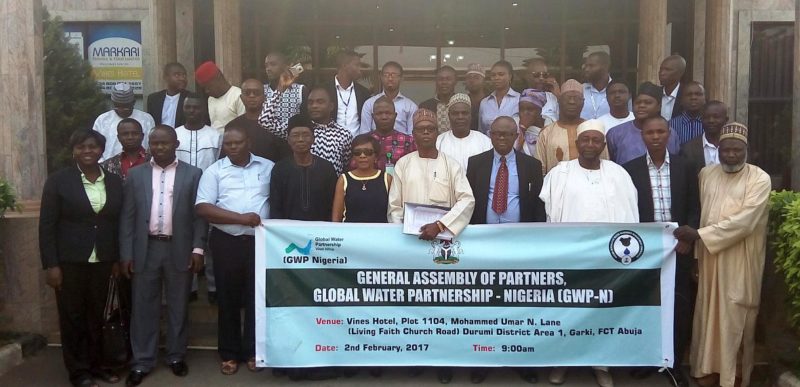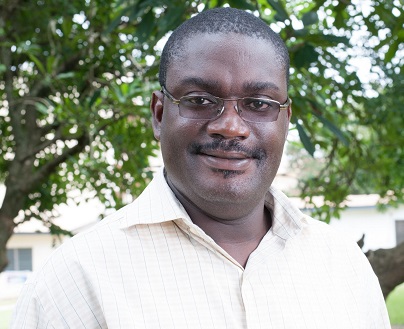Four illegal fishing cases have been found during a joint surveillance mission conducted by Greenpeace and Sierra Leone fishery authorities. Two Chinese vessels and one Korean vessel have been arrested for infringements of Sierra Leone fishing legislation, including possessing or using illegal fishing nets on board, no visible marking and a lack of required paperwork, including log books and authorisation for unloading catch.
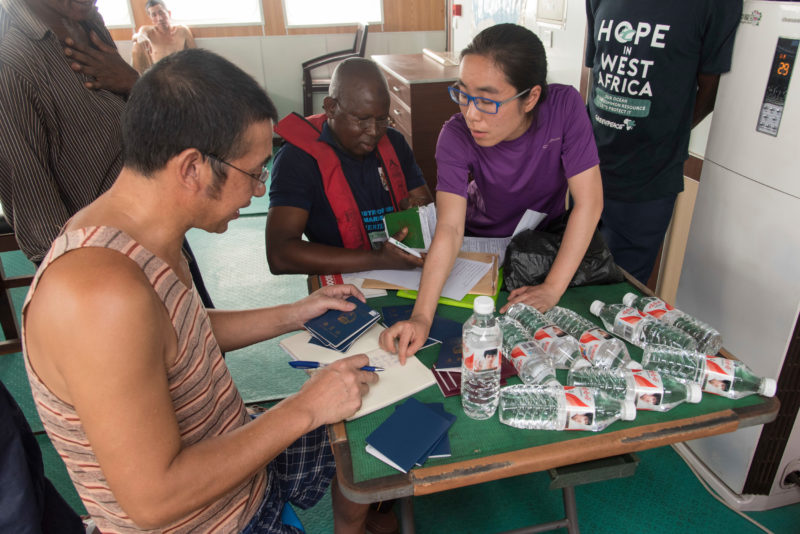
Fishing authorities ordered the vessels to return to Freetown port for further investigation. A fourth vessel, owned by an Italian company, was found with four kilograms of shark fins on board. Though not illegal under Sierra Leonean laws, this is a clear violation of European Union (EU) fishing rules. This boat’s case will be taken further with relevant EU authorities.
In addition, more than 70 bags of shark carcasses were found on one of the Chinese vessels.
Greenpeace and Sierra Leonean authorities inspected and boarded seven vessels during a four-day joint surveillance of Sierra Leonean seas. These included three Chinese vessels, two EU vessels, one Korean vessel, and one Senegalese vessel with Korean investment. More than half of the inspected vessels are suspected of illegal fishing activity.
Ahmed Diame, Greenpeace Africa Oceans campaigner, said: “The findings from just four days of surveillance in Sierra Leone are further evidence that West Africa needs to strengthen its fisheries management. The region’s marine resources are being depleted at alarming rates, mainly due to too many boats competing for too few fish, and high rates of illegal, unreported and unregulated fishing. This ongoing plunder is a threat to millions of people in the region who depend on the oceans for their food.”
Currently, 140 vessels are licenced to operate in Sierra Leonean waters, including tuna purse seiners, demersal and shrimp trawlers and shrimps and mid-water trawlers targeting pelagic fish like sardinella and mackerel. Nearly half of all vessels in the country’s waters are owned by Chinese companies, and 40% by European Union companies.
Pan Wenjing, Greenpeace East Asia oceans campaigner, said: “From talking to Chinese captains during the inspections, it is evident that they have a very limited understanding of local fisheries legislation. Given that almost half of the foreign fishing vessels in Sierra Leone are Chinese, this is a major concern. These vessels need much stricter supervision. In addition, Chinese fishing companies need to supply training on local legislation to all overseas staff.”
Nearly one million of Sierra Leone’s population of seven million depend on fish as a main part of their income and diet. Overfishing and illegal fishing are a direct threat to their food security and livelihoods.
Greenpeace is demanding a stronger fisheries management to help put an end to overfishing and illegal fishing in West Africa. Governments of coastal states and fishing nations must take more responsibility and work together to manage both foreign and local fishing activities and ensure the environmentally sustainable and socially equitable distribution of these resources.
Details on the vessels engaged in illegal, unreported and unregulated fishing activities:
F/V Eighteen
The Italian vessel was inspected on April 15 2017, and shark fins with a total weight of four kilograms were found on board.
Unlike many other countries, such as neighbouring Guinea, shark finning is not yet listed as illegal under the current Sierra Leonean fishery legislation. A new legislation which prohibits finning has not yet come into force. However, according to European Council regulation (EC) No 1185/2003, it is illegal for an EU vessel to have shark fins on board, regardless of whether if it is fishing in EU or foreign waters.
F/V Eighteen is owned by the Italian company Asaro, which is based in Sicily. Sierra Leonean authorities have documented and sealed the bag of shark fins and required the captain to keep the sealed fins on board as evidence.
CONA
The vessel was inspected on April 15 2017, and attempted to escape as the Esperanza approached. The vessel was hiding its name and in possession of fishing net with illegal mesh size on board, both of which are illegal under Sierra Leonean law.
According to Sierra Leonean fishery legislation, the mesh size for pelagic and demersal fishing should be 60 millimetres and above. The fishing net found on board CONA was 51-52 millimetres.
CONA is a Korean vessel. Sierra Leonean authorities confiscated the fishing license, captain’s passport, along with other navigation documents, and required the vessel to return Freetown port immediately for further investigation.
Fu Hai Yu 1111
The vessel was inspected on April 17th 2017, and attempted escape as the Esperanza approached. Two hidden nets with illegal mesh size were found, one in the freezer and the other in a locked container. The captain tried to muddle the inspection with a brand new legal net.
More than 1,400 boxes of catch were found in the freezer on board. The captain claimed all the catch had been unloaded in Liberia. However, the vessel didn’t have the required official authorisation from the Minister of Fishery and Marine Resource of Sierra Leone for unloading its catch outside the country, which constitutes an infraction of local legislation. Further research is being done to ascertain whether this authorisation has been given to the company.
During the inspection, no log book was found on board, making it impossible to verify the catch.
Seventy bags of sharks were found in the boat’s freezer, which the captain claimed would be shipped back to Fujian, China. Current legislation does not penalise sharks being caught as a bycatch, although shark populations are severely impacted by fishing.
Sierra Leonean authorities confiscated the fishing license, crew’s passports, and other navigation documents, and required the vessel to return Freetown port immediately for further investigation.
Fu Hai Yu 2222
The vessel was inspected on April 17th 2017. A piece of fishing net with illegal mesh size was found on board, which the captain claimed was not used for fishing. However, possessing fishing nets with smaller mesh size on board is considered illegal.
No logbook was found on board the Fu Hai Yu 2222. The captain could not provide a precise amount of catch, instead estimating 3500 boxes, which did not match with the estimation of the fisheries observer on board. The captain claimed that catch had been unloaded in Liberia. This, however, is illegal without the official authorisation signed by the Minister of Fishery and Marine Resource of Sierra Leone.
Both Fu Hai Yu vessels are owned by the Fuhai Fishing Company.
The Esperanza is on an expedition in West Africa to document the threat from overfishing to the marine environment and food security for millions of Africans depending on fish. The crew on board with the support of fishing authorities from coastal countries in the West Africa aim to reduce the number of vessels fishing illegally or committing different offense.
The Esperanza, it was gathered, will continue to engage in joint surveillance with local authorities until the beginning of May.

